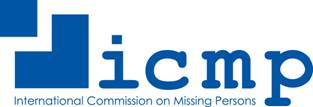
International Commission on Missing Persons (ICMP)
Search Open Yearbook
This information is part of the Open Yearbook, a free service of UIA's subscription-based Yearbook of International Organizations (YBIO). It includes profiles of non-profit organizations working worldwide in all fields of activity. The information contained in the profiles and search functionality of this free service are limited.
The full-featured Yearbook of International Organizations (YBIO) includes over 77,500 organization profiles, additional information in the profiles, sophisticated search functionality and data export. For more information about YBIO, please click here or contact us.
The UIA is a leading provider of information about international non-profit organizations. The aim of the Open Yearbook is to promote the activities of international non-governmental organizations (INGOs) and intergovernmental organizations (IGOs).
Contact Details
More detailed data available with paid subscription.
Founded
1996-06-29 Lyon France
History
Available with paid subscription only.Aims
Help governments guild rule-of-law institutions that successfully and impartially search for and identify missing persons; support efforts to develop legislation to enable families of the missing to assert their rights.
Activities
Available with paid subscription only.Structure
Available with paid subscription only.Languages
Available with paid subscription only.Staff
Available with paid subscription only.Finance
Available with paid subscription only.Relations with Inter-Governmental Organizations
- Links with: European Union (EU)(EULEX Specialist Prosecutors Office (SPO))
- Links with: International Criminal Court (ICC)
- Links with: International Criminal Police Organization - INTERPOL (ICPO-INTERPOL)
- Links with: International Organization for Migration (IOM)
- Links with: Office of the United Nations High Commissioner for Human Rights (OHCHR)
- Links with: Organization for Security and Cooperation in Europe (OSCE)
- Links with: United Nations Development Programme (UNDP)
- Links with: United Nations High Commissioner for Refugees (UNHCR)
- Links with: United Nations Office for the Coordination of Humanitarian Affairs (OCHA)
Relations with Non-Governmental Organizations
Also links with: NGOs and CSOs dealing with issues of missing persons; missing persons family associations.
- Links with: European Network of Forensic Science Institutes (ENFSI)
- Links with: International Committee of the Red Cross (ICRC)
Publications
Available with paid subscription only.Type I Classification
Available with paid subscription only.Type II Classification
Available with paid subscription only.Subjects *
UN Sustainable Development Goals **
UIA Org ID
XE4141
** UN SDGs are linked to the subject classification.
← return to your search page to find additional profiles.
UIA allows users to access and make use of the information contained in its Databases for the user’s internal use and evaluation purposes only. A user may not re-package, compile, re-distribute or re-use any or all of the UIA Databases or the data* contained therein without prior permission from the UIA.
Data from database resources may not be extracted or downloaded in bulk using automated scripts or other external software tools not provided within the database resources themselves. If your research project or use of a database resource will involve the extraction of large amounts of text or data from a database resource, please contact us for a customized solution.
UIA reserves the right to block access for abusive use of the Database.
* Data shall mean any data and information available in the Database including but not limited to: raw data, numbers, images, names and contact information, logos, text, keywords, and links.